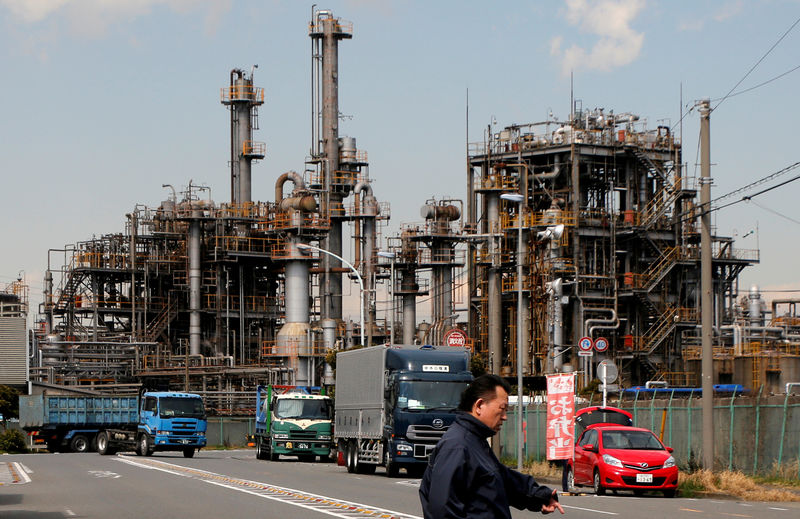By Stanley White
TOKYO (Reuters) - Slowing production of cars and electronics in January tipped Japan's industrial output into its biggest tumble since a devastating earthquake in March 2011, highlighting a weakening in demand and a build up of inventory.
Separate data showed retail sales rose less than expected in January as shoppers cut back spending on clothes, cars, and appliances.
January's production data and a trade ministry compilation of company forecasts for output in February and March suggest that Japan's economy will expand more slowly this year, adding to pressure on policymakers to find new ways to stimulate growth.
Slowing growth could also make companies and politicians even more sensitive to gains in the yen, which eat into exporters' profits and make companies less likely to invest or raise workers' wages.
The yen
A "flash" preliminary reading also showed Japanese manufacturing activity expanded more gradually in February as growth of new export orders slowed due to the yen's appreciation, further emphasizing the corporate sector's acute sensitivity to currency fluctuations.
"Japan's economy will grow this year, but not nearly as fast as it did last year. Japan's government will try to stop the yen from rising, but they also have to worry about trade friction," said Hiroaki Muto, economist at Tokai Tokyo Research Center.
The trade ministry data out on Wednesday showed factory output fell 6.6 percent in January from the previous month.
This was the biggest decline since a 16.5 percent fall in March 2011 and more than economists' median estimate of a 4.2 percent drop. Output rose 2.9 percent in December.
Output of cars and trucks fell by 14.1 percent in January because of weaker exports to the United States, a trade ministry official told reporters.
Car output also fell because severe snowstorms in January delayed deliveries of parts, the official said.
Production of construction equipment fell 7.8 percent, while output of electronic parts and devices fell 6.3 percent to adjust for high inventories.
Manufacturers surveyed by the trade ministry expect output to rise 9.0 percent in February but fall 2.7 percent in March.
Companies expect output of capital goods to fall 8.0 percent in March, while the trade ministry downgraded its assessment of production to say it is only "gradually recovering".
Retail sales in January rose 1.6 percent year-on-year, less than the median estimate for a 2.1 percent annual increase and slower than a 3.6 percent annual increase in December as spending on clothing and new cars fell. Spending on home electronics rose, but at a slower pace than the previous month.
After posting eight straight quarters of continuous expansion to end-2017, Japan's economic recovery may be running out of steam, further undermining efforts by the Bank of Japan to boost inflation to its elusive 2 percent target.
"While industrial output hasn't been the best guide to GDP growth in recent years, this (Wednesday's news) suggests that the longest stretch of uninterrupted expansion since the late 1980s will come to an end this quarter," said Marcel Thieliant, senior Japan economist at Capital Economics.
